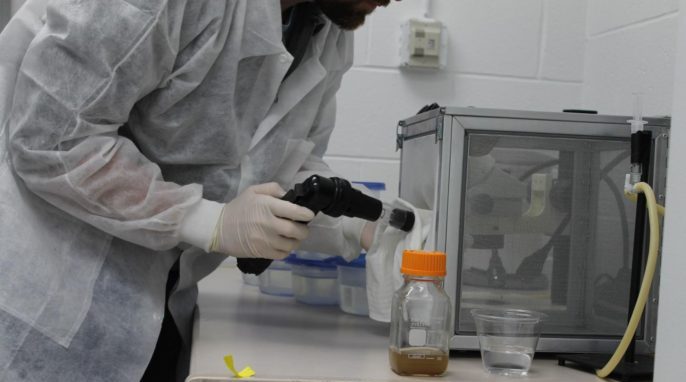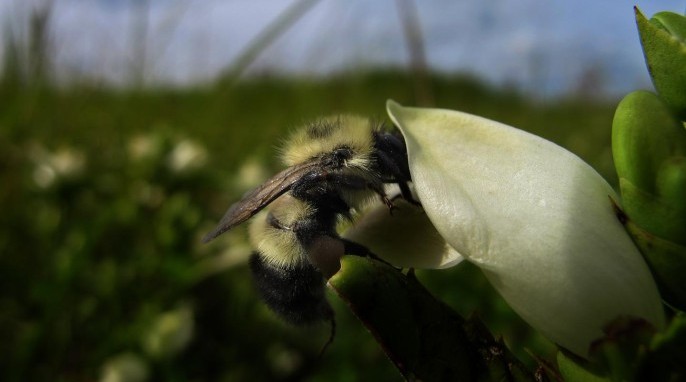Dengue, along with other viral diseases such as Chikungunya and Zika, is transmitted through the virus-infected saliva of Aedes aegypti mosquitoes. Dengue cases have been on the rise worldwide in the past decades—with almost a million cases expected each year—and over half of the world’s population is at risk. In the United States, the states of Hawaii, Florida, and Texas have had outbreaks in the past decade. Mosquito saliva contains over a hundred proteins, some that enhance the transmission of dengue by invading our immune systems, and others that help mosquitoes feed on blood. However, researchers have discovered a protein from the D7 group of proteins in the saliva of Aedes aegypti that binds to the virus and appears to inhibit the transmission of dengue.
Researchers are developing vaccines against dengue, but it is difficult because there are four different strains, known as serotypes, of the virus. If you get infected with one serotype, your body produces antibodies against that virus type, but not against the others, so if you’re infected with another type, the antibodies get confused. As a result, in the second infection the antibodies may bind to the virus, causing it to spread and making the disease more severe.
During feeding, mosquitoes transmit the dengue virus, as well as their saliva proteins, to human skin. Michael Conway, a professor at Central Michigan University College of Medicine, and his team isolated and studied proteins in mosquito saliva that block the transmission of dengue in lab-cultured cells and in mice.
The team noticed high levels of D7 proteins in the saliva of mosquitoes infected with the strain 2 dengue virus and observed that these proteins had an inhibitory effect on the virus. They then synthesized a version of one of the D7 proteins from insect cells and introduced it into cultured cells, either prior to infecting the cells with the virus or at the same time, to see if the protein inhibited the virus. Indeed, they found that virus levels were lower with the protein already present before and during infection. Interestingly, if D7 was added to the cells a day after infection, then the virus was not inhibited, suggesting that the protein acts on the virus early on during infection.
RELATED: New Clues Into How Aedes Mosquitoes Detect Human Targets
Driving out dengue
Next, the researchers wanted to see if the protein could inhibit dengue virus in living organisms. They infected mice through the footpads with either the dengue virus 2 together with the D7 protein or only the virus. They found that the presence of the protein reduced virus levels in both the footpads and also the draining lymph nodes a day after infection. The virus spreads from the lymph nodes to the rest of the body.
Having observed the D7 protein showing inhibitory responses both in vitro and in mice, the team investigated whether or not the protein can interact with the virus. They found that the synthesized D7 protein bound directly to a protein on the surface of the virus. This may prevent the virus from binding to the host cell and thereby prevent infection.
Mosquito saliva contains large amounts of D7 proteins, and our immune system detects and produces antibodies against them. People who are frequently bitten by mosquitoes probably have high levels of antibodies against D7 proteins. The problem is that these host antibodies may inhibit the function of D7 proteins and have been found to increase disease severity.
These findings, the researchers state in their report, will help develop “strategies to limit disease transmission and promote the development of therapeutics, and transmission-blocking vaccines.”
RELATED: What about mosquito eaters? Do they actually eat mosquitos?
Reference
Conway, M. J.; Londono-Renteria, B.; Troupin, A.; Watson, A. M.; Klimstra, W. B.; Fikrig, E.; et al. (2016). Aedes aegypti D7 Saliva Protein Inhibits Dengue Virus Infection. PLoS Negl Trop Dis 10(9): e0004941. doi:10.1371/journal.pntd.0004941
Photo by Maya Tree: Aedes aegypti being removed from their cage.
—Neha is a freelance science writer based in Hong Kong who has a passion for sharing science with everyone. She writes about biology, conservation, and sustainable living. She has worked in a cancer research lab and facilitated science learning among elementary school children through fun, hands-on experiments. Visit her blog Life Science Exploration to read more of her intriguing posts on unusual creatures and our shared habitat. Follow Neha on X/Twitter @lifesciexplore.




